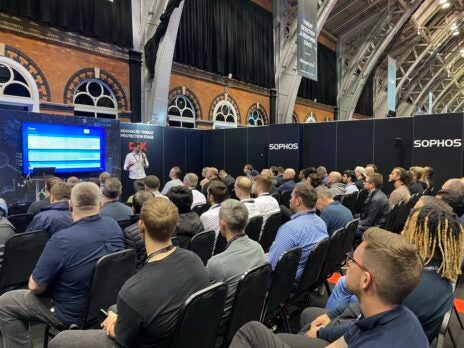
71% of organisations feel that their harnessing of generative AI requires them to update key systems, according to a new study. The survey of 800 IT and business leaders across Western Europe, Canada and the US by Hitachi Vantara and Enterprise Strategy Group also found that organisations based in the US were 35% more likely to say implementing the new technology within their business was a top priority than their European counterparts.
“Enterprises are clearly jumping on the GenAI bandwagon, which is not surprising, but it’s also clear that the foundation for successful GenAI use is not yet built and its full potential cannot be realized,” said Hitachi Vantara’s chief technology officer, Ayman Abouelwafa. “Unlocking the true power of GenAI, however, requires a strong foundation with a robust and secure infrastructure that can handle the demands of this powerful technology.”
A scene created by generative AI showing a CIO introducing genAI to his imperfect working environment. A new study by Hitachi Vantara and has found this scenario is taking place in real life, with 71% of IT leaders (Image: Shutterstock)
More prep is needed in companies for generative AI
Another major concern among respondents was the innate preparedness of their own IT teams to implement generative AI solutions. 53% of IT leaders surveyed, for example, said that their colleagues were unable to keep up with the pace of innovation in the field. 40%, meanwhile, agreed that they themselves were unfamiliar with the specifics of actually deploying generative AI in new digital transformation projects.
The preparedness of companies to use generative AI to the best of their ability was also a major source of anxiety. While many firms said that they were keen on harnessing generative AI to improve process automation (37%), fraud detection (35%) and predictive analytics (36%), only 37% of IT and business leaders said that they were confident their company’s data ecosystem was mature enough to handle the new technology – though of this subset of respondents, C-level executives were 1.3 times more likely to say this than those individuals further down the corporate ladder.
Others implied they had clear concerns about cost. 96% of respondents, for example, said that they preferred to harness non-proprietary models over the more expensive proprietary solutions. Meanwhile, some 78% said they were keen on pursuing hybrid cloud options to implement generative AI over and above the public cloud.
Enthusiasm for LLM-based services remains strong
Anxieties about the innate accuracy of generative AI solutions also persisted. 86% of those surveyed also said that they were planning to leverage Retrieval-Augmented Generation, a solution that allows generative AI models to fact-check their responses, before deploying any generative AI solutions. 81%, meanwhile, said that projects involving generative AI conjured forth new concerns about data privacy and compliance.
Despite this, raw enthusiasm for generative AI remained strong among those surveyed. 97% of organisations said that they viewed its deployment within their business as a top priority, while almost two-thirds said that they had identified at least one use case for the technology. How long it will take to realise the oft-talked potential of generative AI for these organisations, however, remains to be seen. For now, the answer seems to be mixed. When asked whether their firm had seen a boost in its own efficiency, only 43% answered in the affirmative.
Content from our partners











